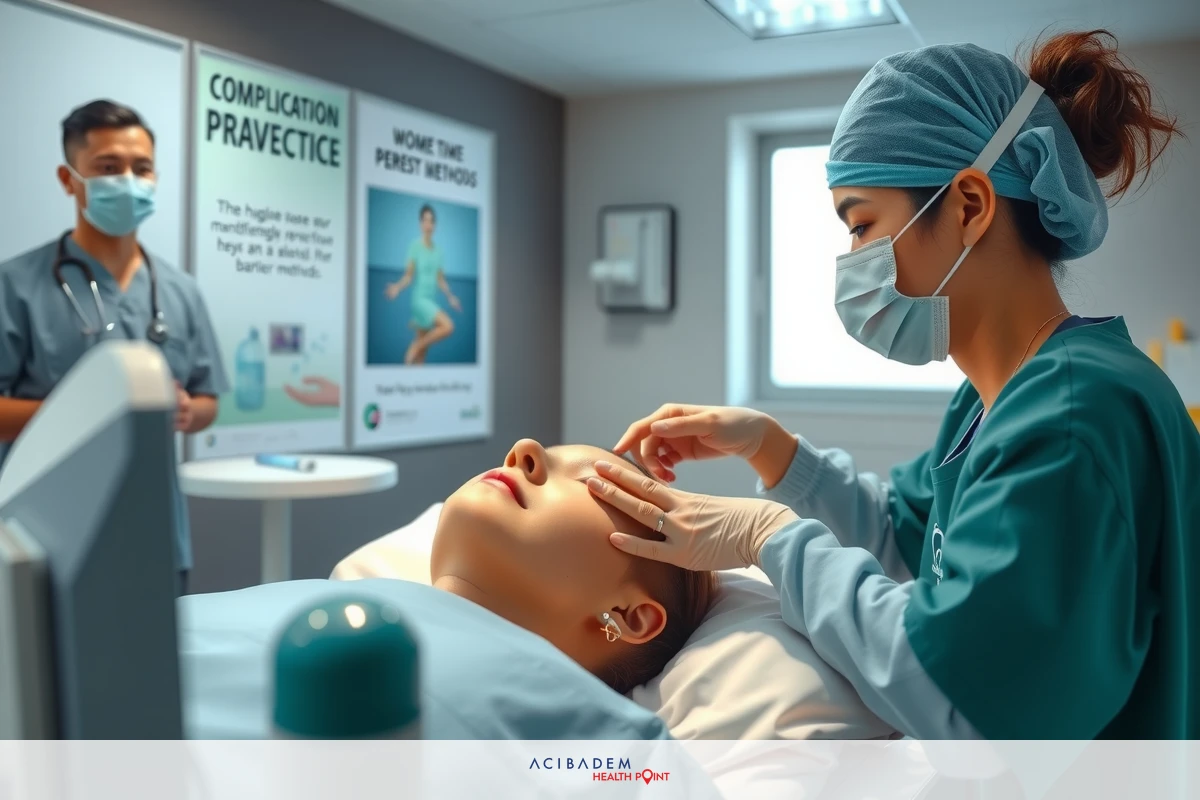What Happens If You Touch Your Nose After Rhinoplasty
What Happens If You Touch Your Nose After Rhinoplasty Rhinoplasty, a common form of plastic surgery, involves reshaping or resizing the nose. Those who have undergone this operation are often curious about postoperative care and recovery. It is crucial to adhere strictly to these guidelines for optimal healing.
The urge to touch your new nose may be overwhelming but resisting it is essential for proper recovery. Each time you contact your newly operated area, there’s a risk of complications that could affect the aesthetic outcome and overall health condition. Thus, understanding why refraining from touching your nose after rhinoplasty aids in fostering patience during the recovery process.
Postoperative Care
Rhinoplasty, while a common procedure, requires meticulous postoperative care to ensure proper healing and minimize complications. Following your doctor’s instructions can significantly enhance the outcome of the surgery and speed up recovery time. Avoiding certain activities is part of this process – one such activity being touching your nose.
The urge may be strong, but resisting it plays an integral role in the overall success of your rhinoplasty. Your nose, having undergone significant alterations during surgery, will likely feel different from what you’re used to. This difference combined with natural curiosity might prompt you towards touching or feeling for changes on numerous occasions throughout the day; however, doing so could lead to unnecessary complications.
Touching your nose after rhinoplasty increases risks such as infection due to bacteria that our hands carry despite regular washing. Furthermore, applying pressure through touch can potentially shift bones or cartilage within the nose leading to deformities that were not initially intended in surgical planning – a consequence that might require revision operations later down the line. Understanding these risks underlines why adhering strictly to postoperative care guidelines is crucial for optimal results and smooth recovery.
Avoiding Nose Touching
Post-rhinoplasty, the urge to touch one’s nose can be strong. This is primarily due to curiosity about the new shape and feel of your nose combined with involuntary habits or reactions such as itching. However, avoiding this seemingly harmless action is essential in the recovery phase after rhinoplasty because it helps prevent complications that could arise from frequent contact.
The question then arises – why exactly is touching your nose post-rhinoplasty potentially harmful? The answer lies within our hands themselves. Despite regular washing and sanitizing, human hands are known to harbor a variety of bacteria which, when transferred onto a healing surgical wound like those present on your nose post-rhinoplasty, could lead to an infection. Infections not only prolong the healing process but also increase discomfort during recovery.
Our noses contain delicate structures of bone and cartilage that have been meticulously reshaped during rhinoplasty surgery. Frequent touching puts pressure on these fragile structures that could potentially lead them out of their intended alignment resulting in undesired changes in appearance or even breathing difficulties – consequences we certainly want to avoid for optimal results from rhinoplasty. Therefore understanding these risks should empower us with patience and restraint throughout the recovery period.
Tips for Preventing Nose Touching
In the aftermath of rhinoplasty, it is not unusual to grapple with a strong urge to touch your nose. This can be attributed to factors such as curiosity about its new shape and feel or an unconscious habit that has developed

over time. Nonetheless, given the potential risks associated with this action during recovery, finding ways to curtail this impulse becomes paramount.
Here are some practical strategies that you may find useful in preventing unnecessary touching of your nose after undergoing rhinoplasty:
- Mindfulness: Cultivating awareness of when and why you touch your nose can help curb the frequency of these instances.
- Distractions: Keeping your hands busy with activities like drawing or knitting could limit opportunities for nose-touching.
- Hygiene Practices: Regular hand washing reduces bacteria on hands which might reduce concerns about infection should accidental contact occur.
- Barrier Methods: Wearing glasses/sunglasses may serve as physical reminders against touching.
- Pain Reminders: Remembering that touching might cause discomfort helps deter incidents.
These tips aim at promoting healing while minimizing complications post-rhinoplasty surgery by aiding in reducing instances of unintended contact with your newly operated nose during recovery period.
Frequently Asked Questions
How long after rhinoplasty should I avoid touching my nose?
The recovery period for rhinoplasty typically lasts several weeks, and it is generally recommended to avoid touching your nose as much as possible during this time. However, the exact duration may vary depending on individual healing rates and your surgeon's advice.
What are some signs that I might be touching my nose too frequently post-rhinoplasty?
Signs could include increased swelling or discomfort in the nasal area, changes in the shape of your nose not consistent with expected healing progress, or even an infection evidenced by pus discharge or persistent redness.
Are there other activities besides touching that I should also avoid post-rhinoplasty?
Yes, there are several activities you should avoid apart from direct contact. These include heavy lifting, strenuous exercise or any activity that could potentially cause trauma to your face until full recovery is achieved.
What steps can I take if it becomes difficult to resist the urge to touch my nose after surgery?
Employing distraction techniques such as keeping hands busy with hobbies can be helpful. Additionally practicing mindfulness about when and why you want to touch your nose could aid in reducing instances of unintentional contact.











